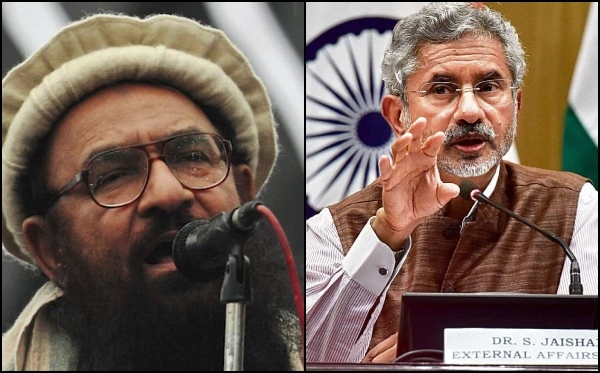NB Explains | Why Abdul Rehman Makki getting listed as global terrorist is a huge success to Indian diplomacy?
China took almost 10 years to remove its hold in multiple attempts to list 26/11 mastermind and Pakistan-based terrorist Hafiz Saeed as a global terrorist, however, in the case of Abdul Rehman Makki, it took only seven months.
Total Views |
In June 2022, India and the US proposed to list Pakistan-based terrorist Abdul Rehman Makki under the UN Security Council's Al-Qaeda and ISIL Sanctions Committee, also known as the UNSC 1267 Committee. However, China had put a hold on the joint proposal.
A week after this development, PM Narendra Modi took a veiled dig at the virtual summit of the Brazil-Russia-India-China-South Africa (Brics). He noted that Brics members "should understand security concerns of each other and provide mutual support in the designation of terrorists" and this "sensitive issue should not be politicised".

It is pertinent to mention that this method adopted by China, a close ally of Pakistan, was identical to the steps it took to repeatedly block the listing of Jaish-e-Mohammed (JeM) chief Masood Azhar under the UN Security Council’s Al-Qaeda and ISIL Sanctions Committee for almost a decade. But, it finally relented in Azhar’s case in May 2019 and removed the block amid mounting international pressure.
However, Makki's case, it had to bend down early due to severe pressure from international leaders amid the severe corona crisis it is facing currently. One of such instance was when United Nations Secretary-General Antonio Guterres, inaugurated India’s Mission LiFE (Lifestyle for Environment) along with PM Narendra Modi in Gujarat’s Kevadia. He said, "Geopolitical divides make it difficult for us to work together effectively against terrorism."
Who is Abdul Rehman Makki?
Who is Abdul Rehman Makki?
Now, after seven months of putting a hold, Makki has been listed as a global terrorist under its ISIL (Daesh) and Al-Qaida Sanctions Committee by the United Nations Security Council (UNSC).
He was more than just the brother-in-law of the 26/11 attacks mastermind and Lashkar-e-Taiba (LeT) chief Hafiz Saeed. The second-in-command, as well as the head of political affairs of the terror outfit LeT and Jamaat-ud-Dawah (JuD), Abdul Rehman Makki, was already listed by India and US as a terrorist under their domestic laws.
China took almost 10 years to remove its hold in multiple attempts to list 26/11 mastermind and Pakistan-based terrorist Hafiz Saeed as a global terrorist, however, in the case of Abdul Rehman Makki, it took only seven months.
Now, a designated global terrorist, he has occupied various leadership roles within LeT, a US-designated Foreign Terrorist Organization (FTO) and has been involved in raising funds, recruiting and radicalizing youth to violence and planning attacks in India, especially in Jammu & Kashmir.
Abdul Rehman Makki, whom Pakistan provided a safe haven has been alleged to be involved in several major attacks against India including the 2008 Mumbai attacks.
In 2020, a Pakistani anti-terrorism court convicted Makki on one count of terrorism financing and sentenced him to prison, according to the US State Department. The United States continues to seek information on Makki because the Pakistani judicial system has released convicted LeT leaders and operatives in the past.
Makki is also a member of organizations like Dawat Irshad Trust, Moaz Bin Jabal Trust, Al-Anfal Trust, Al-Madina Foundation Trust and Al Hamd Trust and Difa-e-Pakistan Council, the motley coalition of 40 right-wing political and religious parties of Pakistan which had once rallied against India and the United States.
Earlier in 2018, global terrorist Hafiz Saeed's brother-in-law, Makki used foul language against Guru Nanak Dev, the first Sikh Guru, at an event in Multan, Pakistan, according to several media reports. It should be noted that there are currently only a few thousand Sikhs in Pakistan, and they are still subject to persecution by Islamic fundamentalists. A majority of Sikhs remained in India during the partition in 1947.

